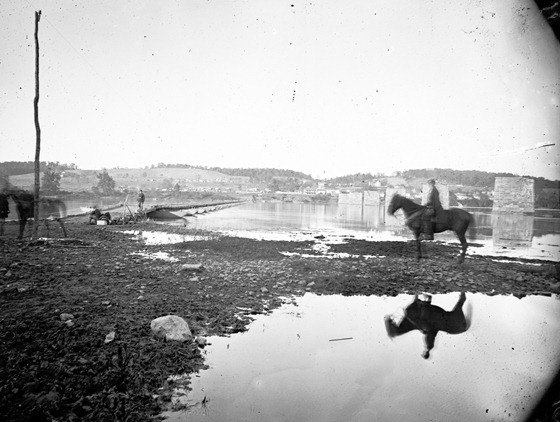October 27.—The British steamer Anglia, with an assorted cargo, while attempting to run the blockade of Charleston, S. C, was captured by the United States bark Restless and steamer Flag.— (Doc. 14.)
—A fight took place near Fayetteville, Arkansas, between a force of Union troops, under the command of General Herron, and a large body of rebel guerrillas, resulting, after an hour’s duration, in the utter rout of the rebels, leaving eight dead on the field, some wounded, all their baggage and many of their wagons.
—The United States gunboat Clifton captured a rebel schooner with eighteen bales of cotton on board, in Matagorda Bay, Texas. The cotton was transferred to the gunboat, and the schooner burned.—A fight took place at Putnam’s Ferry, Mo., between a force of Union troops under the command of Colonel Lewis, Twenty-third Iowa, and a body of rebels numbering about one thousand five hundred, in which the latter were defeated with a loss of several killed and over forty taken prisoners.
A skirmish took place near Labadieville, La., between a force of Union troops under the command of General Weitzel, and a body of rebels under Colonel J. P. McPheeters, resulting in the rout of the latter with great loss. Colonel McPheeters was among the killed.—(Doc. 16.)











